As a continuation of the partnership between the St. Louis Regional Health Commission (RHC) and Humans of St. Louis, Brittany Jones, St. Louis Integrated Health Network Community Referral Coordinator and PrepareSTL Response Team Member, shares her experiences advancing health equity and supporting the community. Read Brittany’s story below and click here for additional RHC and Humans of St. Louis stories.
“So, identify what your role is. And if it’s not leading an organization, is it writing something? Is it merely talking about people’s experiences? Is it checking in with yourself and how you may perpetuate inequity and white supremacy? Just like we have many roles and many jobs to make this world go round, we have many roles and many jobs in equity. It’s okay to find your niche and do it.”
Brittany Jones, St. Louis Integrated Health Network Community Referral Coordinator, PrepareSTL Response Team Member
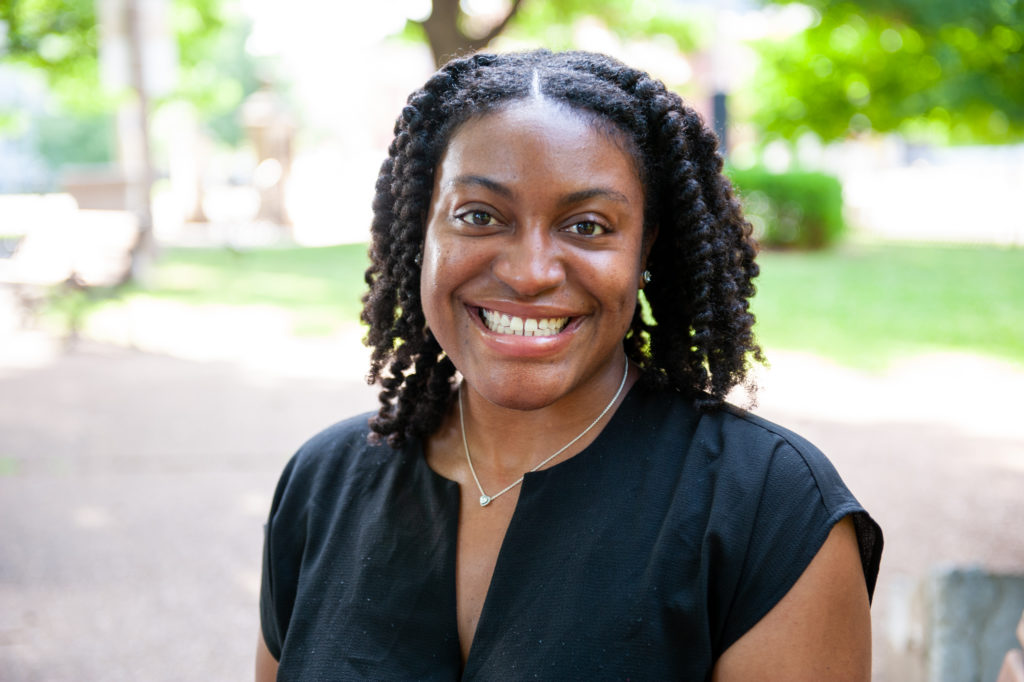
“When was the moment you realized you wanted to work in this field?“
“I love health. I love talking about it, helping people navigate it, helping them figure out their next steps, and helping them tackle the system. Figuring out my own health needs brought me into public health. I joined the Coro Fellows Program in Public Affairs, did some organizing with Action St. Louis and Reproaction, and now I work as a community referral coordinator. Before that, I was part of the Future Public Health Leaders Program with the University of Michigan. That’s what really sealed the deal for me to see how social work and public health work on individual, family, community, and system levels.
We had the opportunity to volunteer in Flint, Michigan during the water crisis. As outsiders, the majority of us were from different states. So it was emotional to see how people felt about the situation. And even more so for them because that was their home. People grew up there and had to flee. I love being in the water, drinking water, and listening to water. But we so often take it for granted. To hear people’s stories when we delivered water about how they had to boil their water in order to use it, or how they really wanted to take a shower but they might have gotten a rash or had their hair fall out — I can’t imagine going home, taking a shower, and that happening.
Through the program, I saw how to provide social services in combination with people’s health needs. What made it more powerful was directly putting that power into the community so they could decide what to do with it. It was led by community leaders, organizations, and churches doing the outreach, going to people’s homes to provide water, food, and baby wipes. If you give people the tools they need, they will make it happen because they know what’s best for them.”
Story 2
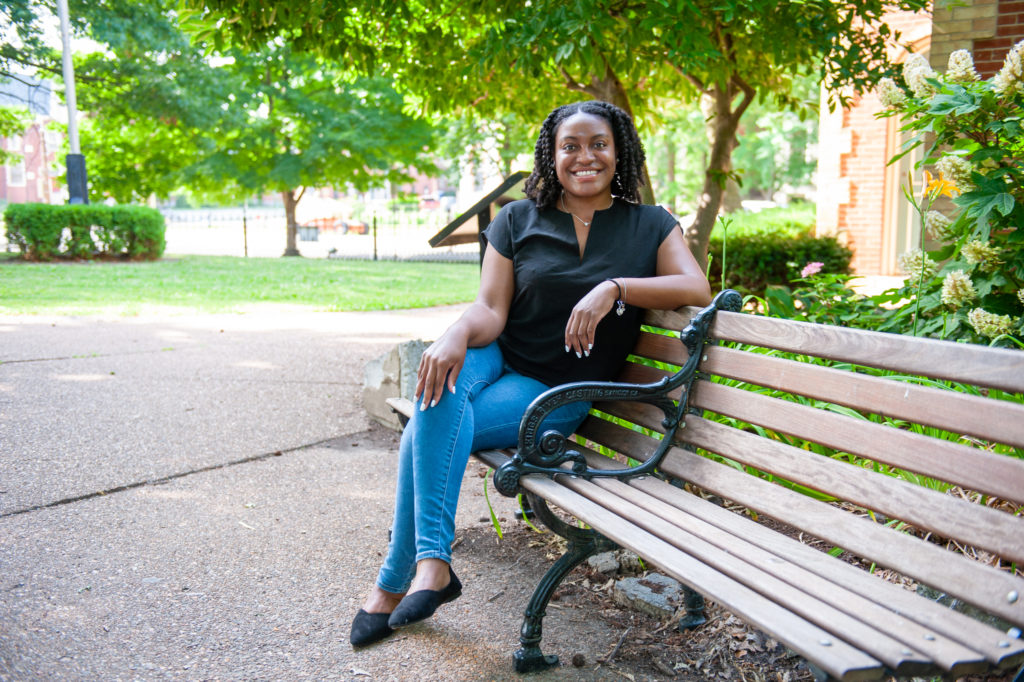
“The St. Louis Regional Health Commission (RHC) is part of the Integrated Health Network’s board. What brought me in the company of RHC is the work we did with Prepare St. Louis, a COVID response campaign that started during the pandemic. As soon as COVID entered the U.S. and got to Missouri, leaders here knew, ‘We have to do something for our BIPOC community because they’re not going to be taken care of as they should.’ It was quick. We worked many long hours.
And in the end, we were able to give out over 20,000 PPE throughout 20 zip codes, provide economic relief, and make connections with the community to provide education and awareness about COVID, like, how to stay safe and stop the spread.
Our group had the same goals and same passions. We didn’t know each other before, but as soon as we got together, we became a family. That goes back to what happened in Flint. When community has access and resources, they make things happen. And we made it happen. It feels like things started to align and the power of community keeps coming to mind.
We have 14 community referral coordinators and 12 of us are in hospitals throughout St. Louis — BJC, Mercy, SSM. Two of us, including myself, are community-based. We coordinate with other organizations who provide social service needs, but typically one thing that’s missing is a healthcare component because it’s such a difficult thing to navigate. So I may work with people who don’t have health insurance or don’t have a doctor. Maybe they have high blood pressure and diabetes and don’t know what to do. It’s my job to get them appointments at community health centers or just talk to them about what their desired next steps and where they can go to receive resources.”
Story 3
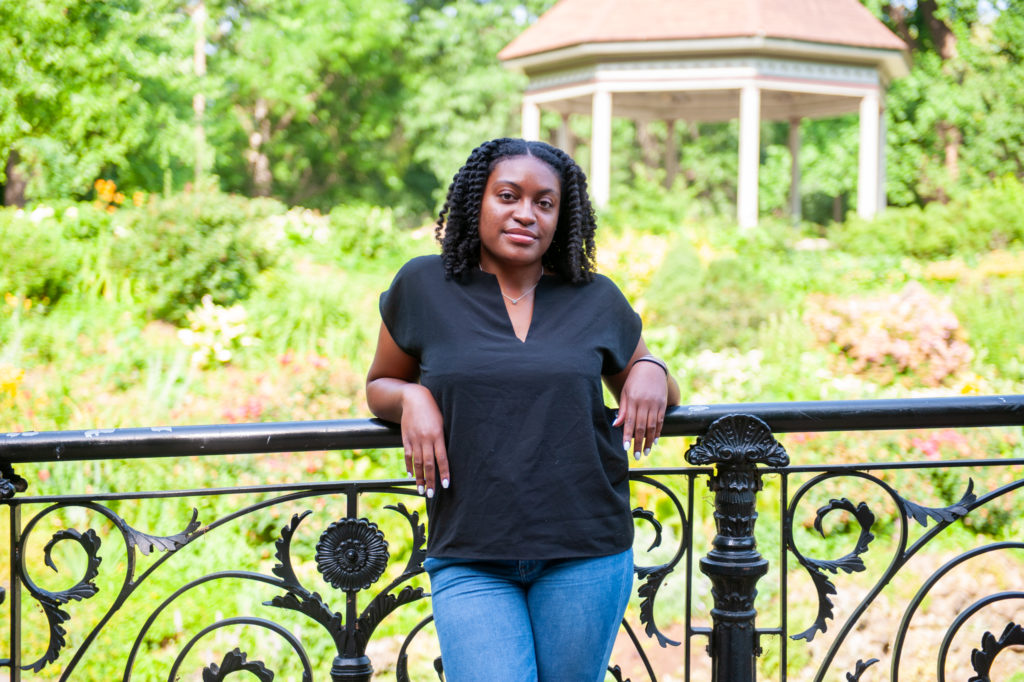
“What I love about my job, which also ignited during the pandemic, is the ability I have to be able to listen to people. People want to know that someone cares. They want to share their hopes, dreams, fears, questions, and how they investigated their own health. I was able to give them that chance pre-COVID and during COVID. People just wanted to talk.”
“That realization came when one day I was on my way home. It was 5:30 PM. I clocked out and walked to the garage. And I got a call from a person I was working with.
The first thing he said was, ‘Brittany, I know you can’t solve all these problems because they’re out of your wheelhouse, but I knew that you would listen.’ So I sat in the car just listening to him. He was upset and something was going on with his housing. I asked if there was anything I could do. He said, ‘There’s nothing you can do. But thank you for listening to me.’ And I felt honored to be called on.”
“We complain about how systems are not doing people justice. And I had to say to myself, ‘Brittany, although you complain, you’re also part of the system because of the nature of your work.’ So what do I do with that? I make sure people know they’re being heard. How? I follow up with what I say and I don’t give false promises. I ask myself, ‘What can I do that’s different?’ And listening is one of those things. Providing time and space for people to be vulnerable and honest. The stuff I hear people say when they’re just being honest with me, I have to remind myself, ‘You’re a human being. I’m a human being.’”
“What do you hear when it comes to how hard it is for folks to access the healthcare they need?”
“When people say, ‘Now this person has health insurance, so they’re good to go,’ that’s not necessarily true. There are so many other factors. At the Integrated Health Network, we collect data on why people cancel or don’t show up for appointments. Some of the top reasons are transportation and work. So if we aren’t creating a system where people can safely get to their appointments on time, how are we supposed to serve them?
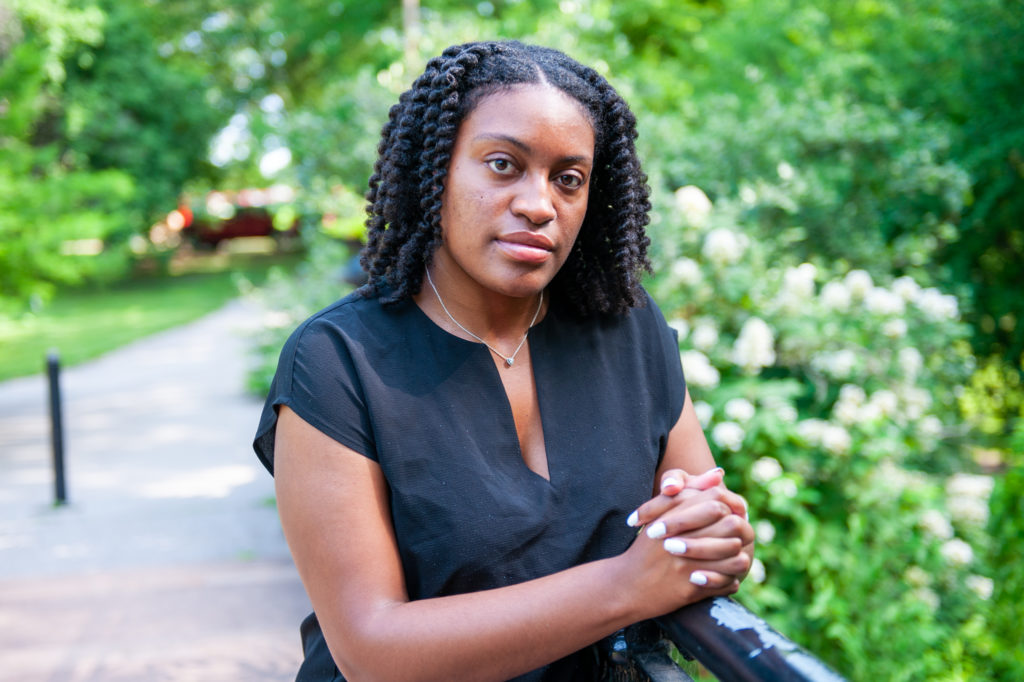
A lot of people may not have the ability to take off a random day or may not know their schedule three to four weeks from now. What does it look like to provide services that aren’t during the normal 9 to 5? A lot of things come up for people, like, what if they don’t have childcare or they have to pay the light bill instead of a copay? They’re humans and life happens. So how do we extend grace and prepare to get back on the ball with them or make sure there’s no shame or guilt with what’s happening?”
“A big piece that’s missing is the quality of care, too. Nobody wants crappy care. So if a person doesn’t want to go to a certain doctor or place of health, it’s okay for them to choose and to say, ‘I don’t deserve that. I want something different for myself.’ We expect just because people have Medicaid or Gateway to Better Health or another insurance plan or no plan that they should be grateful for any quality of care. That’s not true. And it shouldn’t be that way.”
“I love being a Black woman and it has its unique challenges. One thing I constantly think about is my own reproductive health. I ask the most questions when I see my gynecologist. In the past, I had a provider who I felt like wasn’t listening to me or like I was being annoying with my questions. It shouldn’t be like that. When I hear stories from my mom and her experience with birth and delivery with me, I tell her, ‘Mom, that wasn’t okay.’ And I’ll hear stories from friends who have had physically painful experiences leaving their GYN. Like, what happened in that room where you now have pain?”
“My passion is in reproductive health. And I want to get to a place where I can influence and bring about change in the way we talk about it from education to the healing of reproductive trauma to liberation and joy about your body. A lot of women my age, including my friends, are afraid about starting the process of having children and things of that nature. And rightly so. But starting off with that mindset and fear isn’t healthy. So what does it look like to reimagine what our journey looks like?”
Story 5
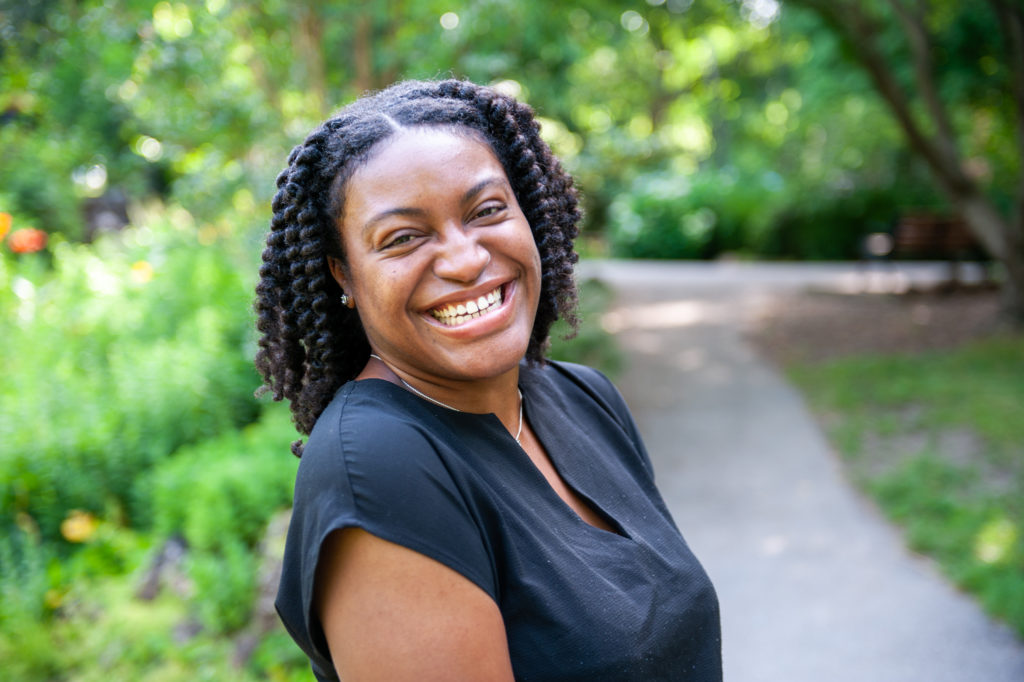
“One of the beautiful things that happened for me in St. Louis has been building a phenomenal sister circle. Every time we get together, we’re happy. We may leave crying, but it’s only because we are passionate and having these open conversations. We don’t always get that chance to be open with other people or we have to maintain a certain demeanor. So to be able to share everything and have them be able to pour into you means everything. As soon as we see that your cup is almost empty, we will make sure you know who you are and what your purpose is before leaving.”
“Of course, we talk about sex. We talk about fear around family planning. We talk about what it’s like to be a Black professional and trying to tackle imposter syndrome. We share our successes and celebrations. The other day, one of my girls and I talked about body positivity versus societal expectations. And how when you’re thinking about our own body positivity, where it is rooted in, how it’s informing us, and how, if it all, that can be swayed. Sometimes, whether we’re conscious of it or not, something is informing it. So how do we understand the root of it?”
Story 6
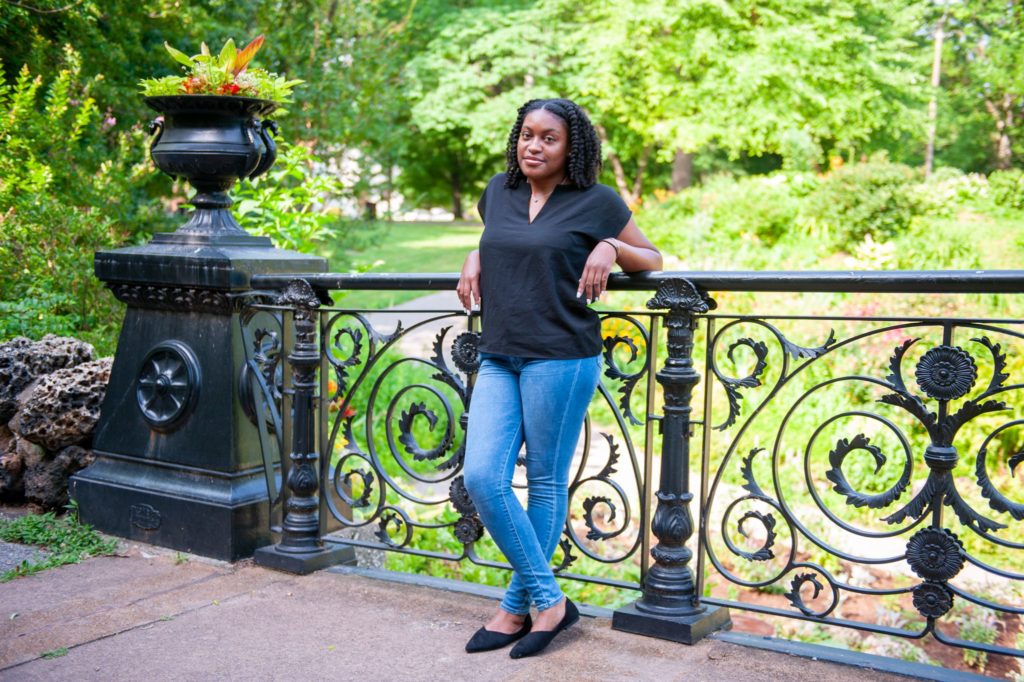
“Equity is one of our guiding pillars in the IHN. We center racial equity at our work and do a lot of racial caucusing. We also do a lot of external work with our partners. I realize that sometimes when equity, racial equity, or health equity is talked about, it can be such an intimidating topic. And it is. It should be because it’s something that’s not gonna come easy, it’s going to take hard work. And it’s going to save lives. But everybody has a role to play and we need to think about what our role is. Just thinking about whether you know it or not, or you’re trying or not, you’re going to be advancing equity or permitting inequity. So trying to identify where you stand is vital.”
“The RHC and IHN are giving their staff the terminology. If something arises in the workplace and needs to be discussed, we all have the ability to call it and address it. And we know our organizations are going to back us up. There’s never a time when you’re going to be ostracized without anyone supporting you. Even just thinking of how I work in all-white spaces sometimes and bringing our voices into the room, I tell myself, ‘I am the only Black woman in this meeting.’ Language affects how we describe a population or the things we’re doing. Even working with patients and the people I serve who are also of color, recognizing they’ve had negative experiences with the health system and validating that by saying, ‘That’s not okay. That’s not right. No, you didn’t make that up or take it too far. What would you like to do about it?’.
Sometimes there are complaint procedures for hospitals. So we walk people through that and become a support system. I know I need that sometimes. I’ll go to my friends a lot and ask, ‘Did I hear this wrong? Am I overexaggerating?’ Obviously, there’s a difference in roles. But, at the end of the day, we’re all humans and we have similar experiences. I need that validation. So I’m gonna give you that too.”
“When it’s said that we’re only as healthy as the least healthy person in our community, what do you want people to know in your endeavor to help people keep working on their health?”
“Sometimes I feel like we’re in this cycle of taking two steps forward and four steps back. People are tired to the point where they want to live their lives for themselves. There are also people in the field who recognize you have to take the gems and those good moments to guide you. Places like the RHC and IHN are truly centering patient experiences and community voices have been able to keep that goal in mind.”
“I’m from Richmond, California, and there are a lot of similarities with St. Louis. People are filled with love and pride and passion, creativity, and resilience. And, similar to St. Louis, they’re often misunderstood and forgotten. Just thinking about those folks and my family, the people here I’ve been able to meet and see on a daily basis, they deserve more. That’s it. I’m gonna continue to fight to get what they deserve. I enjoy getting to know people and the essence of who they are. Paying attention to what they say when they speak and what lights up for them.”
“Do you have a mentor?”
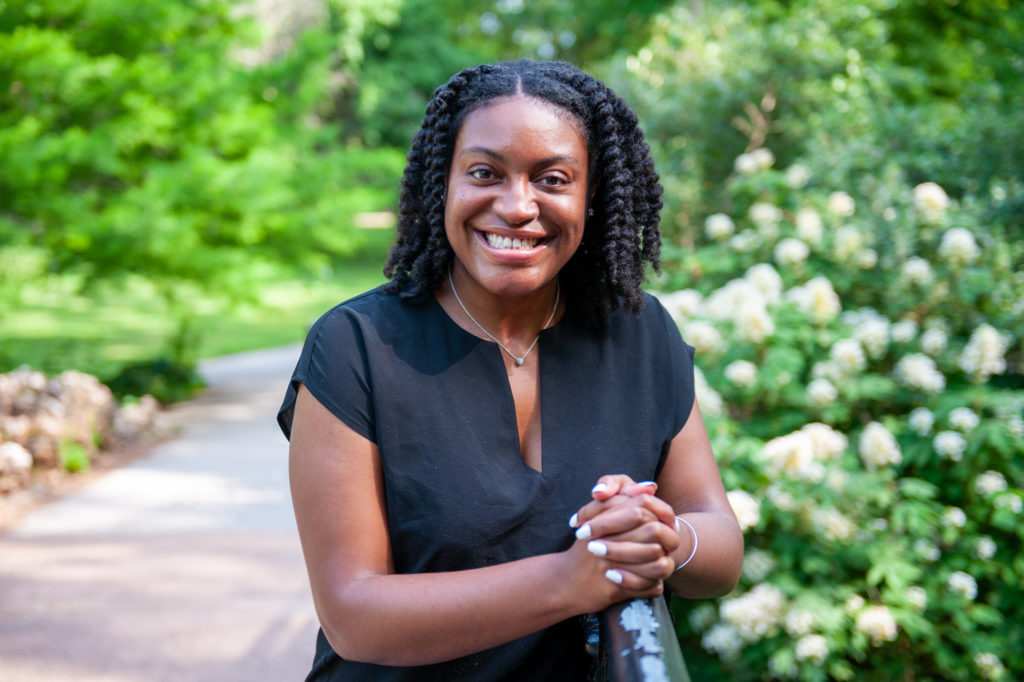
“An individual who especially touched me was Cora Faith Walker. She inspires me to be better, to speak my truth, to live in my truth, and to fight. I’m sad we lost her so soon. She was a brave soul that lives on for St. Louis. And she exemplified the type of leader I would want to be. While she was working in the legislature, I had a chance to shadow and talk with her and see her in all of her: laughs, tears, anger, jokes. Literally, I shadowed her for just a day. And she left such an impact. I just appreciated her authenticity and willingness to be open and embrace me.
All the work she did and the causes she stood for — I was in awe. Amongst Black women, we’re always trying to figure out our place; sometimes feeling like we’re less than. I’m always wondering, when do I get to where I’m not trying to compare myself or not feel inferior? And she was honest with me that you don’t. But you continue to work on who you are, remember where you’re from, what you’re passionate about, and who you are doing the work for. And to surround yourself with your friends. Mayor Tishaura Jones was one of her close friends. And Cora told me how they’d get together, talk, go over to each other’s homes. Wow, to think that these are two prominent Black women, with such high roles in big spaces, and how they continued to lean on each other. You wouldn’t think that this is an issue. I would just assume, they’d have it all figured out, but that’s not always true.”
“What’s important is to have people lift you up when your legs get wobbly or energize you physically, emotionally, and spiritually. So to follow that same mindset has been a beautiful thing. I have friends around the same age and I look up to them because of who they are, what they exude, and the work they are doing. I’m so appreciative of St. Louis for embracing me and helping me along this journey to come to these realizations.”
“As much as you’ve learned and what you know, what is a question you still have about the work you do?”
“An area I’m still struggling to understand is access and affordability for our immigrant and refugee community. There are phenomenal people doing the work and doing good work. And at least within healthcare, there’s still such little access. Regardless of race, there are challenges for low-income folks. Then when it gets to our immigrant and refugee community members and neighbors, it’s even less.
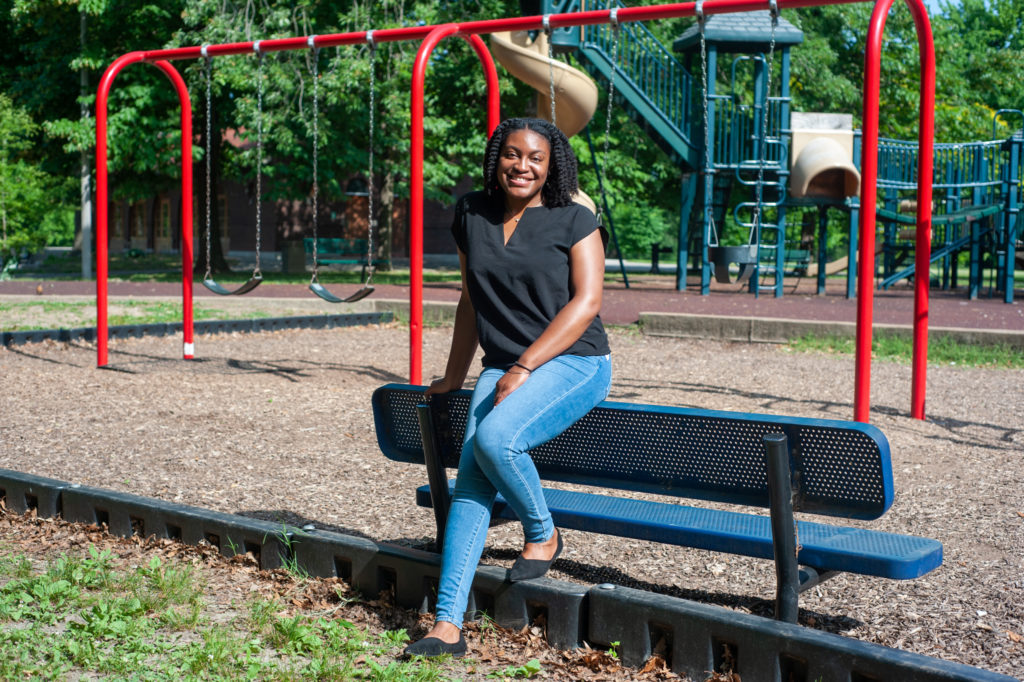
That’s an area where I’m still trying to wrap my head around, what’s the best way for them to receive the care they need and deserve regardless of their status and in the languages they understand with the culturally congruent care they need it to be in? There needs to be more done for them.
I met an individual who just found out she was pregnant at the time and she was having severe abdominal pain. I had to instruct her that she needed to go to the ER. She was in so much pain, I couldn’t have her wait until the day of her regularly scheduled appointment. It felt like it was going to be a life or death situation. I told my supervisor, ‘I don’t speak a lick of Spanish, but I may need to go down there with a translator because she was scared, her child was with her, and she felt sick.’ Being an advocate for all things reproductive health, I thought something needed to happen.
Luckily, the hospital she went to ended up having an interpreter and she had a friend to support. But I was ready to go. And I got permission to go if needed. So just having to navigate that, while using a third-party service to communicate, all that coordinating is difficult. Shout out to the International Institute! Sometimes I’ll send text messages to clients and need to translate them into their language. Same with materials we hand out. And it’s worth it because we want people to be informed, included, and empowered. This lady’s pain was real and that pain was from enduring an ectopic pregnancy and she was okay in the end. All in all, she received the care she needed.”
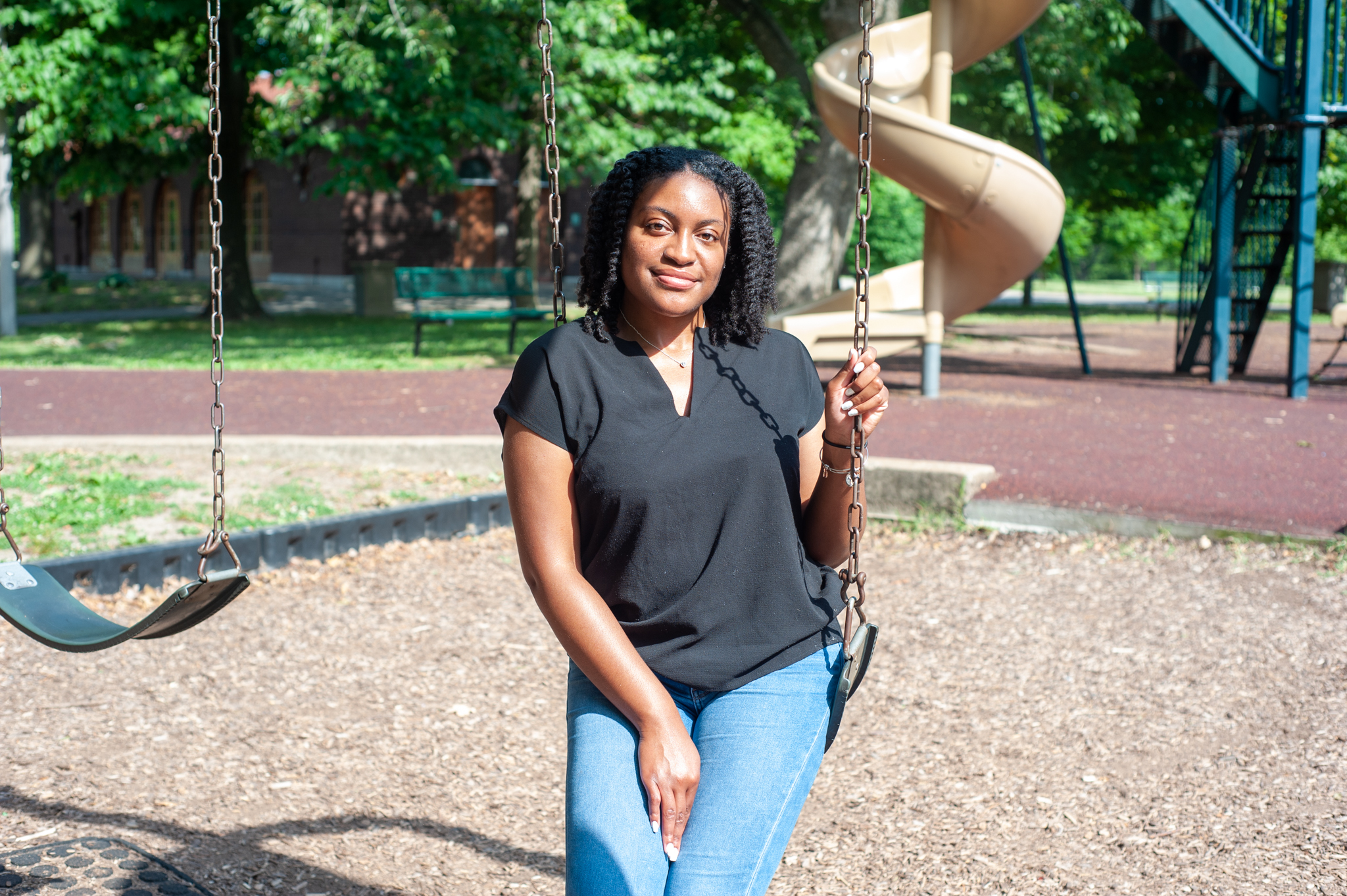
“‘When’s the right time to go to the ER? Which one do I go to?’ Now, especially, I’ve been getting a lot of phone calls from people who are just sick. They’re scared of going to the ER and having hospital bills. Then again, sometimes as a new patient, you can’t wait a month or longer to be seen. So being able to understand and validate even though I’m not a doctor is a difficult position to be in.
Speaking with my supervisor about this need, we began to make changes to our materials. We set up contracts with the International Institute to make sure we have bidirectional support. So we can refer anyone there if they need services and they can refer anyone to us. We always had people involved in the Immigrant Service Provider Network. So we’ve tried to be in the loop as much as we can. But working with health centers, we also try to be involved with doing racial equity work, because St. Louis is so Black and white. So how do we make sure we’re not excluding our other neighbors? It’s vital to bring these conversations to the table.”
Story 9
“People are always like, ‘I didn’t know the IHN does all of that.’ In health spaces, yes. But we’re trying to improve on telling our story better. We’ve just been so deep into the work and there have been so many changes, that we’re navigating all that stuff.
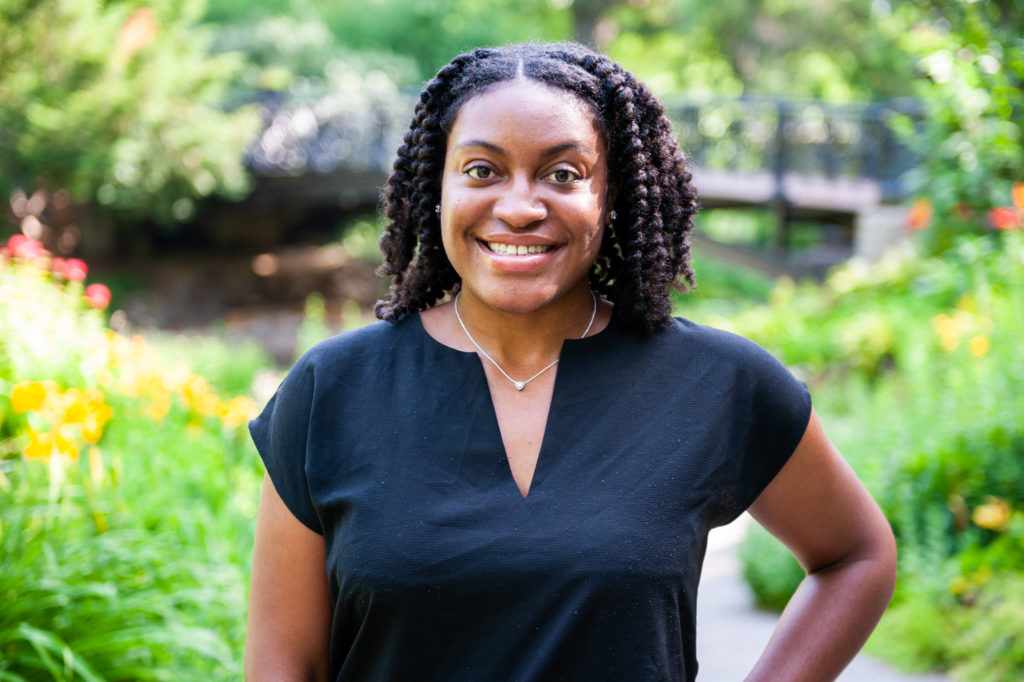
We work to create pathways to healthcare that are accessible and affordable to all. Period. We don’t have zip code restrictions or qualifications. Across the board, whether that’s working with justice-impacted folks or medical students, we try to get people become knowledgeable about what community health is. Maybe people don’t know what their role is with respect to equity. And if they don’t know, they get scared and block it out. But we’re in a time when we can’t afford to block things out anymore.”
“So, identify what your role is. And if it’s not leading an organization, is it writing something? Is it merely talking about people’s experiences? Is it checking in with yourself and how you may perpetuate inequity and white supremacy? Just like we have many roles and many jobs to make this world go round, we have many roles and many jobs in equity. It’s okay to find your niche and do it.”
Brittany Jones, St. Louis Integrated Health Network Community Referral Coordinator, PrepareSTL Response Team Member

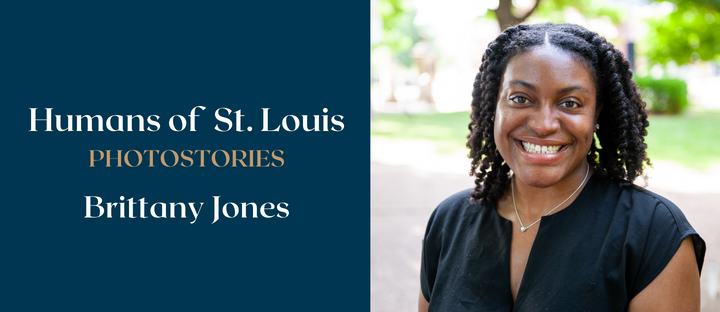
This was a fantastic read! Brittany was so down to earth, vulnerable, compassionate and really understands that making connections with people by giving them space to be heard is good health care. I appreciated her sharing about herself and families healthcare experiences and commitment to serving people in ways that best serves them.